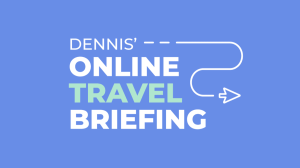Online Travel Companies Make a Bundle Investing Customer Cash
Skift Take

Dennis' Online Travel Briefing
Editor’s Note: Every Wednesday, Executive Editor and online travel rockstar Dennis Schaal will bring readers exclusive reporting and insight into the business of online travel and digital booking, and how this sector has an impact across the travel industry.The longtime business models of online travel companies ranging from Airbnb to Expedia and Booking.com are getting increased scrutiny from the media and short-term rental hosts because these companies hold onto customer funds, and invest them for profits before disbursing them, sometimes months later.
My reaction to this — with one caveat that I will discuss further below — is so what. One reason they would be foolhardy to send the money to hosts and hotels at the time of booking, which might be months in advance of a stay, is because the trips might be cancelled and never take place. And these companies, which use some of these monies for cash flow purposes, would be fiscally irresponsible to shareholders and employees, for that matter, if they didn't invest these customer monies, and make some dinero.
A Tuesday Wall Street Journal sto

